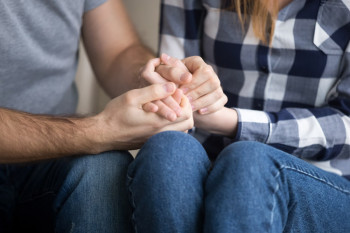
Karen Prager
Couples Daily Lives Laboratory, psychology
Professional Preparation
The University of Texas at Austin - 1977
The University of Texas at Austin - 1975
The University of Texas at Austin - 1973
Research Areas
Research Interests
The Couples Daily Lives Lab studies couple relationships. We are currently exploring the factors that help couples recover emotionally from conflict and return to their normal moods and restore their intimate connection. We began this research with the discovery that couples are more likely than not to experience negative mood and reduced intimacy into the day following a conflict (i.e., hours after the conflict). We also discovered that many conflicts were not recognized by both partners as such, and are exploring factors that might contribute to this difference in perception, such as partners that hide their feelings or fail to persist with communicating their concerns. We are exploring potentially moderating influences on the impact that conflict exerts on the couple partners. We discovered that feeling anxious and insecure about a partner's devotion or emotional availability intensified some partners' difficulties with recovering from their conflicts. We also discovered that a partner's behavior during the conflict, particularly if the partner withdrew, communicated contempt, or allowed the conflict to expand beyond the original problem, affected the speed and completeness of an individual's post-conflict recovery. Further, a partner's dysfunctional conflict behavior could override any ameliorating effects exerted by a secure attachment to the partner. When people withdrew or communicated contemptuously during conflict, their partners experienced more drastic changes in mood and more psychological distance from the other, especially if they felt secure in the relationship, perhaps because they were not accustomed to such behavior from their partners.
We are currently collecting data in anticipation of studying further the couple behaviors and communication processes that predict rapid or complete recovery from conflicts. We are examining the couple partners' ability to calm themselves during frustrating interactions and the extent to which they interfere with (or not) each other's autonomous decision-making and activities. Finally, we are exploring person-relationship interactions to identify aspects of individual personalities that might affect couple partners' satisfaction with their relationships and ability to recover from conflict, such as self-worth, narcissism, interpersonal sensitivity, and individual well-being.
Publications
Appointments
The University of Texas at Dallas [1996–Present]
The University of Texas Southwestern Medical Center [1996–Present]
Program in Clinical Psychology
Lesley College, Cambridge, MA [1986–1989]
The University of Texas at Dallas [1981–1996]
Part-time Private Practice [1980–Present]
The University of Texas at Dallas [1979–1981]
Mental Health Center, Denville, New Jersey [1978–1979]
Thomas Jefferson Medical College Community Mental Health Center, Philadelphia, Pennsylvania [1977–1978]
Community College of Philadelphia [1977–1978]
Rutgers: The State University of New Jersey at Camden, Camden, NJ [1977–1977]
Projects
The Self-Other Inventory: A Couple-Focused Measure of Differentiation of Self.
2018–2018 Poucher, J., Prager, K.J., and Allam, Z. (October, 2014). The Self-Other Inventory: A Couple-Focused Measure of Differentiation of Self. Paper presented at the Annual Meeting, American Association for Marital and Family Therapy, Milwaukee, WI.Conflict and emotion in couple relationships: An attachment perspective.
2018–2018 Shirvani, F.K. & Prager, K.J. (August, 2013). Conflict and emotion in couple relationships: An attachment perspective. Paper presented at the Annual Meeting, American Psychological Association, Honolulu, HA.Attachment security, gender, and conflict that expands beyond the problem: Effects on couples post-conflict intimacy.
2018–2018 Prager, K.J., Thompson, A., Mayers, R., & Shahlaee, B. (July, 2014). Attachment security, gender, and conflict that expands beyond the problem: Effects on couples’ post-conflict intimacy. Paper presented at the Annual Meeting, International Association for Relationship Research, Melbourne, Australia.Attributions, attachment style, and conflict in couple relationships.
2012–2018 Cavallin, G.L. & Prager, K.J. (July, 2012). Attributions, attachment style, and conflict in couple relationships. Paper presented at the Annual Meeting, International Association for Relationship Research, Chicago, Ill.Depressive Symptoms After Couple Conflict: Attachment Security and Contemptuous Conflict Behavior.
2018–2018 Patell, Juhi & Prager, K.J. (November, 2014). Depressive Symptoms After Couple Conflict: Attachment Security and Contemptuous Conflict Behavior. Paper presented at the Annual Meeting, Texas Psychological Association. Dallas, Texas.Additional Information
Academic Honors
Graduate
- Phi Kappa Phi 1977
- Pi Lambda Theta 1976
- University Tuition Scholarship 1975-1976
Undergraduate
- Phi Beta Kappa 1973
Clinical Experience
Counseling and psychotherapy:
- Approach: My approach combines cognitive-behavioral, family systems, and humanistic approaches.
- Couple/Marital: Married, premarital, cohabiting, gay, and remarried couples and their families.
- Individual: Affective disorders, anxiety disorders, adjustment reactions and posttraumatic stress disorders, personality disorders, pathological grief reactions, social and interpersonal problems, stress management
- Career and academic: Career indecision, mid-life career change, concentration difficulties, test anxiety, time management, study habits, writer's block.
- Group: Assertiveness training, career development, communication skills, stress and anxiety management.
Clinical Supervision:
- Supervised psychotherapy caseloads for graduate students in clinical and counseling psychology. Supervised undergraduate paraprofessional counselors.
Consultation, Training, and Administration
- Program Head, Gender Studies Program, The University of Texas at Dallas
- Supervise ongoing curriculum development, course offerings, selection of instructional faculty, periodic program reviews, and Gender Studies Lecture Series.
- Designed and wrote program proposal, web-page, and brochure for new Gender Studies Program
- Interim Director, Carolyn Lipshy Galerstein Women's Center, The University of Texas at Dallas
- Interim College Master (Undergraduate Advisor), School of General Studies, The University of Texas at Dallas
- Provided training seminars for mental health professionals in counseling skills, team-building, communication skills, crisis intervention.
- Conducted organizational assessments, and provided team-building and training experiences for Dallas area businesses.
- Designed, implemented, and administered Psychology Internship Program at comprehensive, hospital based community mental health center.
News Articles
Kiss and Make Up, or Not? Researchers Analyze Post-Conflict Behaviors
 No relationship, no matter how healthy, is immune to conflict. But the way in which a serious disagreement is resolved can lead to growth or deterioration of that relationship, according to new research from The University of Texas at Dallas.
No relationship, no matter how healthy, is immune to conflict. But the way in which a serious disagreement is resolved can lead to growth or deterioration of that relationship, according to new research from The University of Texas at Dallas.The team of researchers designed a trio of studies to pinpoint the best tactics for reconciling conflicts within a relationship. They published their results recently in the Journal of Family Psychology.
A team led by Dr. Karen Prager, professor of interdisciplinary studies and psychology, identified four broad categories of post-conflict behavior and found that actively repairing the relationship was most effective, while avoidance was most detrimental.